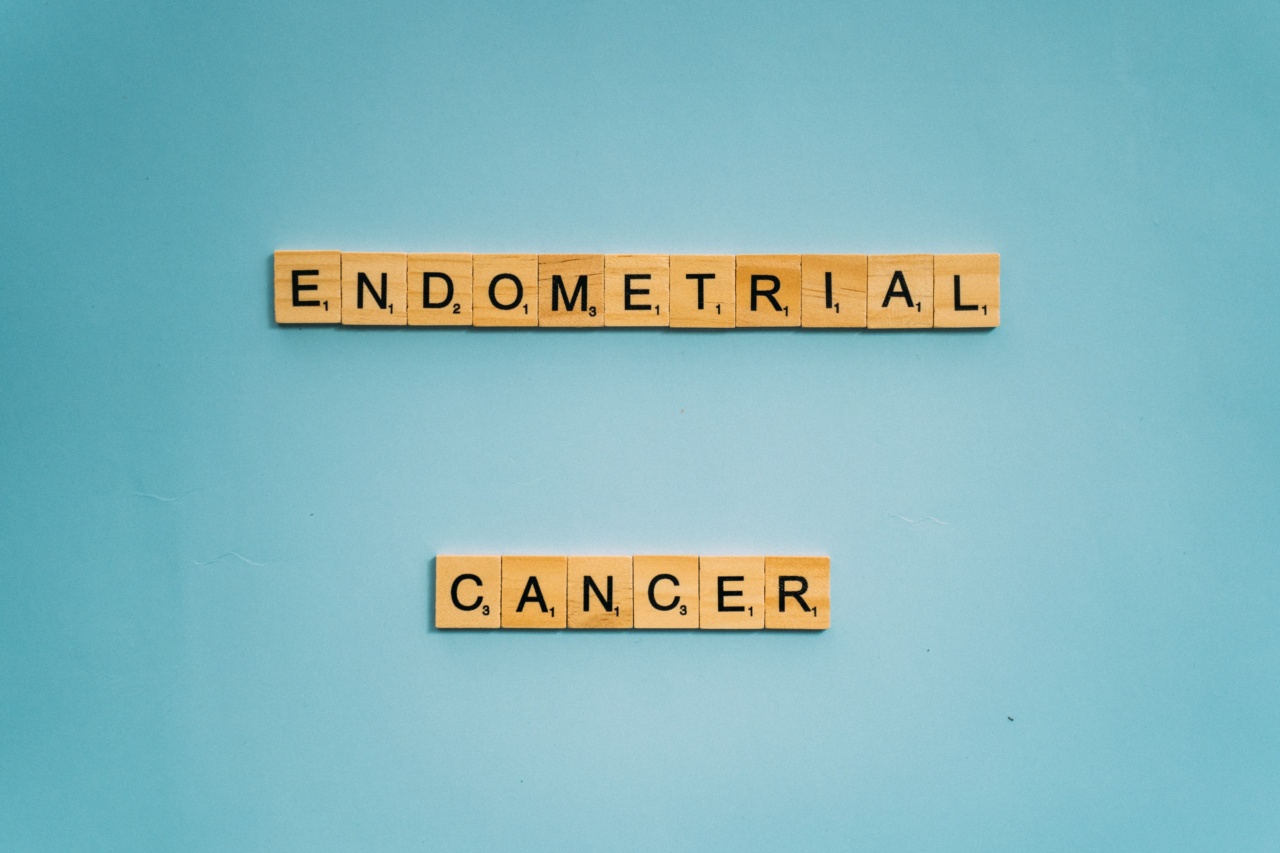Carrying excess weight not only affects our overall health but also increases the risk of developing various types of cancer. One such cancer is endometrial cancer, which primarily affects the lining of the uterus.
Endometrial cancer is the most common type of cancer in the female reproductive system, and its prevalence has been on the rise in recent years. In this article, we will explore the link between carrying extra weight and endometrial cancer, as well as delve into the dangers associated with it.
Understanding Endometrial Cancer
Endometrial cancer refers to the abnormal growth of cells in the lining of the uterus, known as the endometrium. This type of cancer usually occurs in postmenopausal women, although it can affect women of any age.
The exact cause of endometrial cancer is not well understood, but researchers have identified several risk factors, including hormonal imbalances, genetic predisposition, and lifestyle factors.
The Obesity Epidemic
Obesity has become a significant health concern worldwide, with numbers steadily increasing over the years.
In fact, the World Health Organization (WHO) reports that more than 1.9 billion adults are overweight, and over 650 million are classified as obese. This rise in obesity rates can be attributed to various factors, including sedentary lifestyles, poor dietary choices, and an increase in processed foods.
Obesity and Endometrial Cancer
Research has shown a strong association between obesity and the development of endometrial cancer. The excess weight plays a crucial role in disrupting the delicate hormonal balance within the body, leading to an increased risk of cancer.
Adipose tissue, or fat cells, produce estrogen, a hormone responsible for regulating the menstrual cycle. When the body has an excess amount of fat cells, the production of estrogen becomes unregulated, leading to an imbalance that can trigger the growth of cancer cells in the endometrium.
The Role of Estrogen
Estrogen is a vital hormone in the female reproductive system and plays a crucial role in regulating various bodily functions.
However, when estrogen levels are consistently elevated due to excess weight, it can stimulate the growth of cells in the endometrium. Over time, these cells may become cancerous, resulting in endometrial cancer. Therefore, it is crucial to maintain a healthy weight to ensure a proper hormonal balance within the body.
Additional Risk Factors
While obesity is a significant risk factor for endometrial cancer, it is essential to acknowledge that other factors can also contribute to its development. These include:.
1. Hormonal Imbalances
Hormonal imbalances, such as polycystic ovary syndrome (PCOS), can increase the risk of endometrial cancer. PCOS is a condition characterized by an overproduction of estrogen and a lack of ovulation, leading to an imbalance in hormone levels.
2. Age
Endometrial cancer primarily affects postmenopausal women due to the loss of hormonal regulation after menopause. However, it can also occur in younger women, especially those who are obese or have hormonal imbalances.
3. Genetic Predisposition
Some individuals may have a genetic predisposition to endometrial cancer. Inherited gene mutations, such as Lynch syndrome, can significantly increase the risk of developing this type of cancer.
4. Diabetes
People with diabetes, especially type 2 diabetes, have an increased risk of endometrial cancer. Diabetes is often associated with obesity and insulin resistance, which can contribute to hormonal imbalances and the development of cancer cells.
Prevention and Management
While endometrial cancer can be a life-threatening disease, there are steps individuals can take to reduce their risk:.
1. Maintain a Healthy Weight
As discussed earlier, obesity is closely linked to endometrial cancer. By maintaining a healthy weight through a balanced diet and regular physical activity, individuals can significantly lower their risk of developing this type of cancer.
2. Regular Exercise
Engaging in regular physical activity not only helps with weight management but also provides many other health benefits.
Exercise can help regulate hormone levels, improve insulin sensitivity, and reduce the risk of various cancers, including endometrial cancer.
3. Healthy Diet
Adopting a healthy diet that is rich in fruits, vegetables, whole grains, and lean proteins can lower the risk of endometrial cancer.
It is important to limit the consumption of processed foods, sugary beverages, and high-fat foods to maintain a healthy weight and hormonal balance.
4. Regular Check-ups
Regular visits to the gynecologist can help detect and treat any potential issues early on. Routine screenings, such as Pap smears, can identify abnormal changes in the cervix and endometrium, allowing for timely intervention and treatment.
Conclusion
Carrying excess weight is not only a risk factor for various health conditions but also increases the likelihood of developing endometrial cancer.
The disrupted hormonal balance caused by obesity can lead to the growth of cancerous cells in the endometrium, posing a significant danger to women’s health. By promoting healthy lifestyles, maintaining a proper weight, and addressing other risk factors, individuals can reduce their chances of developing this potentially life-threatening disease.
Remember, prevention and early detection play crucial roles in combating endometrial cancer and ensuring overall well-being.




























